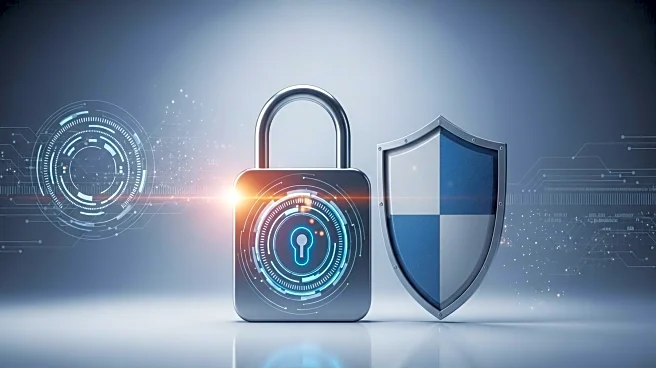What is the story about?
What's Happening?
The information security industry is being urged to move away from the traditional CIA triad model, which focuses on confidentiality, integrity, and availability. This model, originally developed for U.S. government and military computer security in the 1970s, is now considered outdated in the face of modern threats such as cloud infrastructure vulnerabilities, autonomous AI, and fragile global supply chains. Experts argue that the simplicity of the CIA triad, once its strength, has become a limitation, forcing Chief Information Security Officers (CISOs) to retrofit modern concepts like authenticity, accountability, and safety into a rigid structure. This has left dangerous gaps that attackers exploit, highlighting the need for a new, layered, and contextual model that elevates CISOs from reactive technicians to strategic business partners.
Why It's Important?
The call to abandon the CIA triad reflects a significant shift in cybersecurity strategy, emphasizing the need for models that can effectively address 21st-century threats. As cyberattacks become more sophisticated, relying on outdated frameworks could leave organizations vulnerable, impacting industries reliant on secure data management and protection. The transition to a more comprehensive security model could enhance the ability of businesses to safeguard their operations, protect consumer data, and maintain trust in digital transactions. This shift is crucial for maintaining competitive advantage and ensuring resilience against cyber threats that could disrupt economic activities and national security.
What's Next?
The cybersecurity community may see increased advocacy for new frameworks that incorporate modern security concepts. Organizations might begin to adopt models that prioritize authenticity, accountability, and safety, potentially leading to changes in cybersecurity policies and practices. CISOs and security teams could engage in discussions and collaborations to develop and implement these new models, influencing industry standards and regulatory requirements. This evolution in cybersecurity strategy could also prompt educational institutions to update curricula to prepare future professionals for the challenges of modern threat landscapes.
Beyond the Headlines
The shift away from the CIA triad could have ethical and cultural implications, as it challenges long-standing security paradigms and encourages a more holistic approach to data protection. This transition may also influence global cybersecurity practices, as U.S. models often set precedents for international standards. The move towards more adaptive and resilient security frameworks could foster innovation in cybersecurity technologies and methodologies, driving long-term advancements in the field.

















